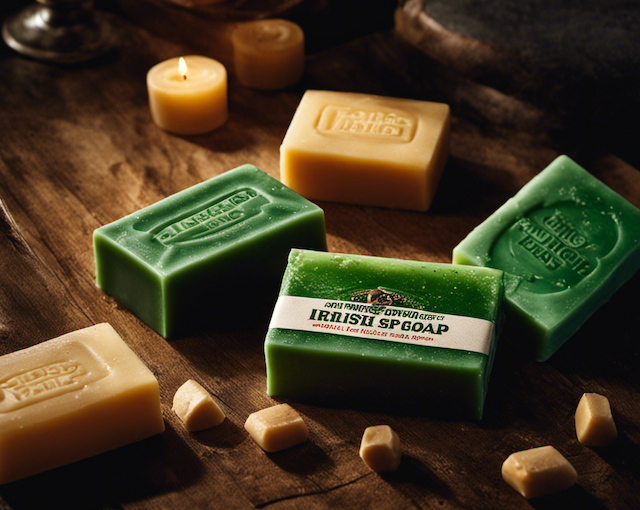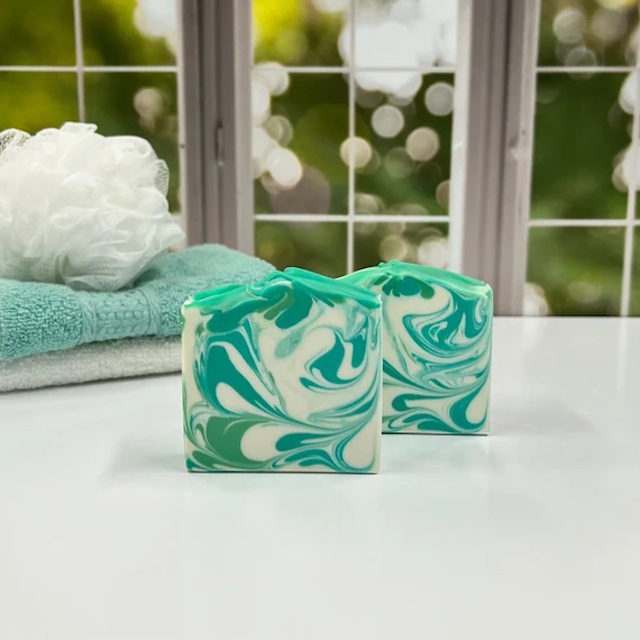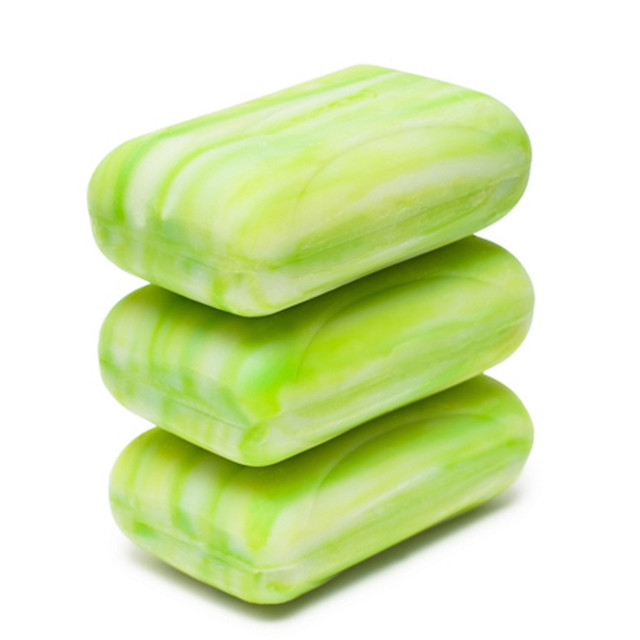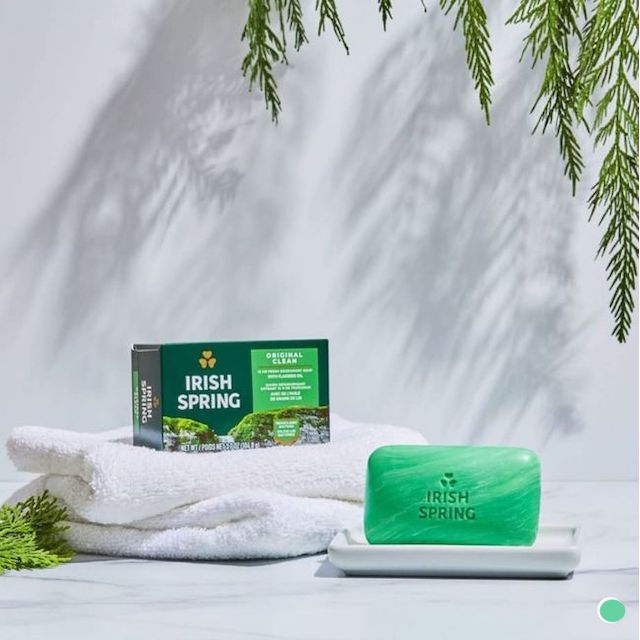The Surprising Use of Irish Spring Soap
Does irish spring soap repel mosquitoes? The humble Irish Spring soap bar may keep mosquitoes at bay. The soap’s strong scent and essential oils might act as natural repellents. Gardeners and homeowners alike are trying this trick. They grate the soap near plants and in homes to fend off pests. Garden experts and DIY enthusiasts have shared mixed reviews. Some swear by this method, while others remain skeptical. The original deodorant bar, launched in 1970, gets the most credit for repelling insects. Varieties in different scents are less known for these properties.
Shannon Harlow-Ellis, a pest control expert, notes the presence of picaridin and oil of lemon eucalyptus in the soap. These ingredients are recognized by the EPA. They could help repel mosquitoes and other pests. However, there is no solid science backing up these claims yet.
Homeowners are creatively using Irish Spring soap. They place shavings in areas where bugs are common. Yet, it might not work for all pests or in every situation. Factors like the types of mosquitoes and personal attraction levels play a role. For mice and spiders, the soap may not be as effective.
Still, as a low-cost and natural alternative, Irish Spring soap has gained popularity. It offers a possible solution for those looking to avoid harsh chemicals. While its effectiveness can vary, it could be worth a try for minor pest issues. For severe problems, professional pest control is always the safer bet.
Analyzing the Active Ingredients
When evaluating the potential of Irish Spring soap as a mosquito repellent, the active ingredients merit close attention. Notably, this soap contains picaridin and oil of lemon eucalyptus. Picaridin is a synthetic compound modeled after a natural compound found in black pepper plants. It’s known for being effective against a variety of insects. Meanwhile, oil of lemon eucalyptus is derived from the leaves of the Eucalyptus citriodora tree and has a reputation for warding off mosquitoes.
Given that both picaridin and oil of lemon eucalyptus are recommended by the EPA, it suggests they have qualities that repel pests. Yet, the concentration of these substances in the soap might be lower than in specialized repellent products. This could affect performance.
Let’s break it down further:
- Picaridin: A repellent that’s odorless and less irritating to the skin compared to DEET; effective against a range of insects.
- Oil of Lemon Eucalyptus: Recognized as a natural repellent, it has a refreshing scent disliked by mosquitoes.
It’s important to remember that while Irish Spring soap does contain these ingredients, there is no conclusive evidence to prove their effectiveness when used in soap form. Thus, the real-world impact might differ.
Overall, the presence of these active ingredients offers hope that Irish Spring soap could assist in repelling mosquitoes. However, due to the lack of scientific evidence specific to the soap itself, consumers might experience varying results. For dependable protection against pests, specially formulated products with proven track records are recommended.
Effective DIY Pest-Control Hacks
Looking for ways to fend off pests without using chemicals? Try these cost-efficient and do-it-yourself pest-control tricks.
- Soap Gratings: Grate bars of strong-scented soap like Irish Spring around your green spaces. Its aroma may deter various pests.
- Essential Oils: Mix essential oils like peppermint or lemon eucalyptus with water. Spray the mixture on areas where pests are common.
- Vinegar Solutions: Create a mixture of vinegar and water to spray around the home. The strong smell can repel ants and other insects.
- Coffee Grounds: Spread used coffee grounds around garden beds. Many pests dislike the smell and acidity.
- Cucumber Peels: Place cucumber peels near ant entry points. Many insects dislike their bitter compounds.
- Herb Plants: Grow pest-repellent herbs such as lavender, basil, and rosemary. They keep mosquitoes and flies at bay.
Remember, while these methods might be effective, you need to apply them regularly. For lasting control, combine these hacks with proper sanitation and home maintenance.
Limitations and Alternative Methods for Mosquito Control
While some claim that Irish Spring soap can repel mosquitoes, it’s not a foolproof plan. This old-school bar has limitations. It may not work for everyone or against all pests. Factors like the area, mosquito species, and personal scent can affect its usefulness.
When it comes to keeping mosquitoes away, consider other methods as well. Here are a few:
- DEET-Based Repellents: Use sprays or lotions with DEET. They are proven to be effective.
- Mosquito Nets: Install nets on windows and doors to physically block these pests.
- Electronic Repellers: Gadgets that emit sounds or use light to drive mosquitoes away.
- Citronella Candles: Burn these candles outdoors. Their smell can keep mosquitoes at bay.
For indoor control, here are more options:
- Ultrasonic Devices: Plug these in to repel mosquitoes with sound waves.
- Indoor Plants: Some plants, like citronella and catnip, naturally repel mosquitoes.
Always combine different methods for the best result. Keep your environment clean and stagnant water-free to reduce mosquito breeding grounds.
Expert Opinions on Irish Spring Soap as a Repellent
Opinions differ on using Irish Spring soap against pests. Experts are not all in agreement. Some suggest it might work due to its strong scent and essential oils. Yet, definitive scientific evidence is lacking. Skeptics advise using proven methods instead. Here’s what the pros say:
- Shannon Harlow-Ellis (Entomologist): She points to ingredients like picaridin and oil of lemon eucalyptus, which are recognized by the EPA for repelling pests. But she cautions that there’s no hard evidence confirming the soap’s efficacy as a repellent.
- Meg Pearson (Wildlife Removal Expert): Meg stresses that Irish Spring soap is unlikely to drive mice away or prevent them from nesting. She recommends targeting their food sources and seal entry points.
- Leslie Vincent (Gardening Expert): Leslie confirms that the intense smell of Irish Spring can deter animals from your garden. But, she notes that results may vary widely.
- Andrew Gaumond (Horticulturist and Botanist): He opines that the soap’s citrus odor could effectively repel mid-sized garden pests, such as rabbits and deer.
- Jill Sandy (Gardener and Blogger): Jill advises testing different soaps for pest control because of their varied ingredients and scents.
In concluding, it’s essential to consider these expert insights when weighing the use of Irish Spring soap as a mosquito repellent. It seems opinions are mixed, and while some anecdotal evidence exists, it’s best to use this method as one of several strategies in pest control. Always have backup options like specialized repellents ready, especially for serious infestations.
Practical Applications in Gardens and Homes
Turning to the practical use of Irish Spring soap, gardeners and homeowners might find some benefits. While this is not a guaranteed solution, incorporating the soap into your pest control routine can be simple and cost-effective. Here are methods both for outdoors and indoors:
- Outdoor Use: Grate the soap and sprinkle it around garden beds, walkways, or even perimeter of your yard. The strong scent may keep deer, rabbits, and other garden pests at a distance. However, consistent re-application after rain or watering is necessary.
- Indoor Use: For indoor plants, you can place small pieces of soap in potting soil or create a mixture using the soap. Some claim this can discourage indoor pests like gnats. Alternatively, hang soap in muslin bags in areas prone to insects or mice.
Remember, Irish Spring soap’s efficacy varies. Local pest species, soap placement, and environmental conditions all influence outcomes. For those trying this hack, it’s a chase of trial and error. Do not rely solely on soap. Combine with other methods like strategic planting and regular cleaning to combat pests most effectively.
Comparing to Other Pest Repellent Options
When seeking ways to repel mosquitoes, it’s useful to compare options. Irish Spring soap is one choice, but how does it stack up against alternatives? Looking at other repellents can help you decide the best course of action.
DEET-Based Products
These repellents have long been trusted for their efficacy. They come in sprays and lotions and can offer long-lasting protection from mosquitoes. However, some people prefer to avoid DEET due to concerns about its chemicals.
Citronella Solutions
Citronella is a natural plant oil that repels mosquitoes. It’s often used in candles and torches for outdoor areas. While pleasant smelling and natural, its effects can be short-lived and may not be as strong as chemical repellents.
Ultrasonic Repellers
Devices that emit sound waves claim to repel pests. Their effectiveness varies, and they might not be suitable for all environments. They provide a chemical-free option, which is a plus for some users.
Plant-Based Repellents
Certain plants emit scents that naturally deter pests. Examples include citronella, catnip, and marigolds. These require more effort to maintain but can be a decorative and natural method for repelling mosquitoes.
Insecticidal Soaps
A more direct approach to dealing with pests on plants. These soaps can kill bugs on contact. They’re ideal for gardeners looking to protect their plants without harming them.
Given the various options available, Irish Spring soap may be used as an additional tactic alongside these repellents. Consider your specific needs and preferences when choosing the right mix of mosquito control methods.



